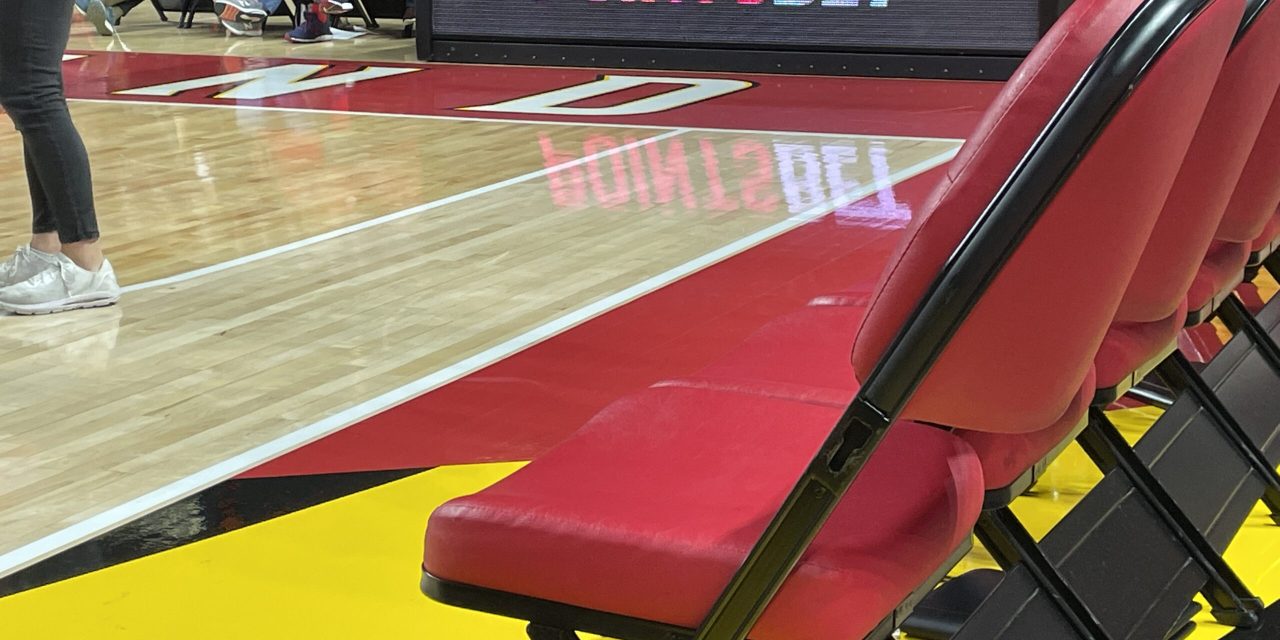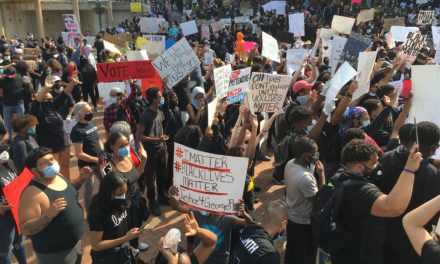By MICHAEL CHARLES
ANNAPOLIS, Md. – PointsBet sports book terminated its marketing deal with the University of Maryland in late April, according to published reports, and all parties are silent on the fallout from the end of the contract.
The partnership allowed PointsBet to advertise on UMD’s campus, in its arenas, and across sports radio broadcast airwaves. A series of contracts allowed the public university to keep secret the terms of the deal. The move means that at least three top schools – Michigan State, Maryland and Colorado – with betting marketing contracts have now ended those agreements as problems and criticism of them mount. Another agreement with LSU is uncertain after Caesar’s signage was removed there.
The University of Maryland College Park signed an agreement originating in December 2021 with the sports marketing firm PlayFly Sports, which then created a company just to deal with UMCP marketing deals called Maryland Sports Properties. It is PlayFly’s Maryland Sports Properties that contracted with PointsBet to be the official gaming sponsor of Maryland Athletics.
University President Darryll Pines’ office, as well as Athletics administrators Damon Evans and Jason Yellin, declined to respond to Capital News Service emails seeking information about the contract. Only Brian Ullman, Maryland’s vice president of Marketing and Communications responded, referring all inquiries from CNS to PointsBet, which did not respond to repeated requests for information and clarification.
The Shirley Povich Center for Sports Journalism and the Howard Center for Investigative Journalism, both at the Philip Merrill College of Journalism at the University of Maryland, reported in February that some universities shield their sports betting agreements by working with third-party marketing companies. The Povich and Howard centers discovered a close relationship between the University of Maryland and Maryland Sports Properties. Some MSP officials had university-issued email accounts and an office at Xfinity Center, the athletic venue where many UMD sports teams play and some coaches and administrators have offices.
Legal Sports Report, an online site, reported the Maryland deal was off on Tuesday, and other online sites, including Sports Handle, have reported the termination. Darren Rovell, a reporter with Action HQ, first reported the Maryland deal was off in a tweet on April 27.
“PointsBet and Playfly Sports have reached a mutual agreement to end their sponsorship at the University of Maryland,” the company said in a statement to Legal Sports Report. Other published reports have indicated that PointsBet’s U.S. business is up for sale.
News of the end of the Maryland deal comes as SB 620, a bill requiring universities to fully disclose all terms of partnerships with sports gaming entities and banning commission-based profit by schools, awaits the signature of Gov. Wes Moore.
This bill was also designed to enhance transparency around gaming contracts by disallowing contracts via third parties and saying that all such contracts are, “subject to public inspection in accordance with the Maryland Public Information Act.” When this legislation was passed, Maryland’s contract with PointsBet through PlayFly Sports, was already in effect and not subject to the bill.
“What this (contract ending) shows is that the University of Maryland is acknowledging they made a serious mistake in partnering with a predatory gambling operator,” said Les Bernal of Stop Predatory Gambling. “For the sake of greed, at the expense of its own students. They placed greed over the best interests of students and they finally moved away from that.”
The contract termination comes amid controversy in the college sports betting arena. In late March, the University of Colorado terminated a similar contract with PointsBet.
The University of Alabama fired head baseball coach Brad Bohannon for directly interacting with a bettor in Ohio who bet against the Crimson Tide. Similarly, Iowa athletics is investigating 26 student-athletes from varying sports teams regarding possible sports betting violations. Specifically, the Iowa gaming commission is investigating the Hawkeyes baseball team.
The end of the deal leaves a lot up in the air: Will the collapse of both the Maryland and Colorado deal deter other universities from entering such contracts? Will Maryland pursue another partnership with a sports gaming entity? What was the motivation for ending the PointsBet/Maryland deal and how will both entities now move forward?
Rebecca Snyder, executive director of the MDDC Press Association, provided possible reasons for PointsBet backing out of the deal while acknowledging the potential for Maryland to pursue another contract.
“It could mean (PointsBet is), like, full-scale eliminating all their contracts with schools. That maybe that says either it’s not profitable enough for them or it’s too complicated or maybe … there’s too much scrutiny and it’s not worth their ability to do it,” Snyder said. “I don’t think anything went off the table. Whatever agreement they come to, they’ll need to know that it’ll have more transparency in that process, more scrutiny and of course more discussion. It seems like a really lucrative business so I can’t imagine that somebody won’t try to jump in at some point to create another agreement.”
Bernal agreed that sports gaming entities will not be shy in continuing to pursue such deals because sports betting is profitable. That means it’s the responsibility of universities to protect students by avoiding these partnerships, he said. Public pressure also likely increases universities’ reluctance.
“The University of Maryland did not do this out of their own goodwill. I think they did it because they were facing, you know, growing, intense public scrutiny and good media reporting,” Bernal said. “I think PointsBet wants these deals, badly. I think universities are facing intense, intense scrutiny not to do these deals. I think PointsBet would do a deal with every university in this country if they could.”
As sports betting continues to be legalized across the country, the issue of how schools balance joining such contracts with protecting students is going to become more imperative, experts say.
“We’ve had three schools that have announced that they had disciplinary measures because of student-athletes betting or coaches betting. It’s a problem,” said Tom McMillen, former U.S. congressman and president, and chief executive officer of Lead1, which represents athletics directors at 131 member universities of the Football Bowl Subdivision. McMillen is uniquely qualified to discuss the issue because he is a former University of Maryland All-American basketball player and Olympian, who went on to play 11 years in the NBA with the Buffalo Braves, New York Knicks, Atlanta Hawks, and Washington Bullets.
“I don’t think sports betting is going to go away in the United States,” McMillen said, “But I think there are some very necessary steps that have to be taken before anyone engages in those areas, because it’s just, it’s highly risky.”
McMillen specifically referenced the need for universities to have safe spaces to help students with gambling addictions, debts, and any other potential consequence of sports gambling, if they decide to pursue such contracts.
“You have to make it a part of your whole medical center, and you have to talk about the problems of gambling,” McMillen said. “Every school needs to take precautionary steps to make sure that this doesn’t blow up in their face.”
If a new contract were to be signed in Maryland moving forward, its details should be easily accessible to the public and state legislature, unlike UMD’s previous contracts, under the legislation pending before Moore. While Snyder acknowledged the importance of transparency, Bernal said universities should not participate in these deals in any capacity.
“On the bright side, I feel like now, especially with the legislation that was passed, this last session, whatever contracts or agreements come in place subsequent to this contract termination will have to be more public, which I think is definitely a good thing,” Snyder said. “When public dollars are involved, and certainly the University of Maryland gets all or most of its funding through the state, I think more transparency is required. They have a duty to the public and to the state to show how they’re spending their money as well as how they’re transacting to monetize their student body essentially.”
“It’s not in the public interest for a public university to be partnering with any of these predatory dealing operators and this is just one baby step towards making a huge difference on this issue,” said Bernal. “There shouldn’t be any deals with any gaming operators, regardless of the transparency or not, because it’s a dangerous and addictive product for college students.”





Recent Comments